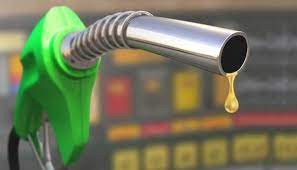Despite reassurances from the Nigerian National Petroleum Company (NNPC) Limited, petrol prices have soared in several parts of Nigeria, with some filling stations now charging over N700 per litre. This increase adds to the financial strain on Nigerians already grappling with economic challenges.
Reports from Daily Trust indicate that independent marketers in Sokoto and Borno states have adjusted their pump prices, demanding prices as high as N700 per litre from motorists. In Borno, one motorist revealed that some stations manipulate their dispensing machines, resulting in even higher costs exceeding N750 per litre. In Sokoto, prices range between N690 and N700 per litre, while in Kano, they vary from N620 to N690 per litre, depending on the filling station.
However, contrary to these reports, NNPC filling stations maintain a price of N620 per litre, according to observations. Even in Lagos, where prices are relatively lower, petrol is being sold between N620 and N640 per litre at various filling stations.
The surge in petrol prices contradicts NNPC Ltd’s recent message, assuring Nigerians of no imminent increase in the cost of Premium Motor Spirit (PMS). The state-owned company urged Nigerians to ignore baseless rumors and emphasized the ample availability of petrol nationwide.
Meanwhile, there are positive developments at the Port Harcourt Refining Company (PHRC), where progress has been made in readiness for operations. NNPC announced the supply of 475,000 barrels of crude oil from Shell Petroleum Development Company Limited for the refinery, raising hopes of a potential decrease in petrol prices once operations commence.
However, oil marketers have expressed concerns about a possible petrol scarcity if NNPC fails to supply petrol to depot owners and other dealers promptly. Reports of long queues at filling stations in Lagos and parts of Ogun State raise fears of a nationwide shortage if the issue is not addressed promptly.
As Nigerians grapple with the latest surge in petrol prices, concerns persist about the economic impact on citizens already facing financial difficulties. The situation underscores the need for sustained efforts to stabilize petrol prices and ensure adequate supply to meet the nation’s demands.











